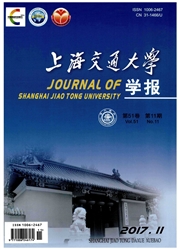

 中文摘要:
中文摘要:
针对金属设备表面发生凝露问题,提出在金属表面涂覆硅胶干燥剂的技术方案,通过硅胶被动吸湿防止凝露产生.通过构建实验系统,用发生凝露的时间参数t表征此措施的防凝露效果.实验表明,涂覆硅胶干燥剂可延长t,当金属温度低于露点温度时,对应环境的露点温度越低,防凝露效果越好;当露点温度一定时,金属温度越高,防凝露效果越明显.进一步用吸附动力学模型对涂覆干燥剂金属样片的凝露过程进行分析,并计算了水蒸气扩散系数,其大小影响凝露发生的时间.结果表明,扩散系数与环境的水蒸气分压及硅胶自身温度有关.当硅胶温度相同时,水蒸气分压越小,扩散系数越小;当水蒸气分压相同时,硅胶温度越高,扩散系数越小,发生凝露所需时间越长.
 英文摘要:
英文摘要:
Water vaporcondensation on metal surface causes corrosion and further affects the performance. In order to decrease this disadvantageous effect, in this paper, the coating of desiccant material (silica gel) to metal surface was proposed. The performance of this method was analyzed both by experiments and by theoretical investigation. Condensation time was adopted as the performance index. Experimental results indicate that desiccant-coated metal surface can effectively delay condensation time which is defined as parameter t. When the temperature difference between metal surface and the dew point is constant, t increases with the decrease of the dew point temperature. When the dew point temperature is constant, t increases with the increase of metal surface temperature. Then, the dynamic condensation process on metal surface was analyzed using the adsorption kinetic model. The diffusivity of water vapor is calculated, because t is affected by the diffusivity of water. The results show that the diffusivity of water vapor is affected significantly by the temperature of silica gel and the water vapor partial pressure. When the temperature of silica is constant, the water vapor diffusivity decreases with decreasing water vapor partial pressure. And when the water vapor partial pressure is constant, the water diffusivity decreases with decreasing temperature of silica, leading to a longer delay time of condensation.
 同期刊论文项目
同期刊论文项目
 同项目期刊论文
同项目期刊论文
 Feasible study of a self-cooled solid desiccant cooling system based on desiccant coated heat exchan
Feasible study of a self-cooled solid desiccant cooling system based on desiccant coated heat exchan 期刊信息
期刊信息
